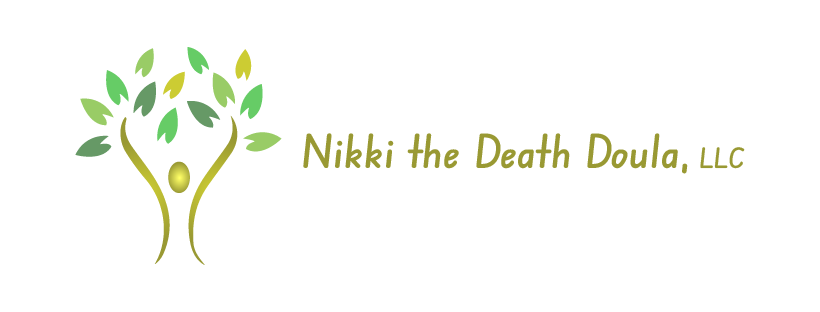Supporting Caregivers: A Death Doula's Perspective
Caregiving is one of the most impactful acts of love a person can offer, but it’s also one of the most demanding. Whether it’s for a parent, partner, or friend, being a caregiver means stepping into a role that requires endless patience, emotional resilience, and physical stamina. It’s not just a task; it’s a journey—and one that no one should have to navigate alone.
As a death doula, I witness the quiet strength of caregivers every day. They are the unsung heroes of life’s most tender moments, providing comfort, dignity, and compassion to those nearing the end of their journey. But caregivers need care too. Supporting them is just as vital as supporting the person they are caring for.
The Emotional Weight
Caregiving is deeply emotional work. It can be heartwarming and fulfilling, but also heartbreaking and isolating. Caregivers often carry a mixture of love, grief, frustration, and guilt, all at once. They often feel like they’re not doing enough, even when they’re giving everything they have.
Part of supporting caregivers is recognizing these emotional complexities. It’s about acknowledging their feelings without judgment and reminding them that it’s okay to feel overwhelmed. Caregivers don’t have to be superheroes—they’re human, and it’s natural to need help.
Practical Ways to Help
If you know a caregiver, one of the best things you can do is offer practical support. Caregivers often neglect their own needs because they’re so focused on the person they’re caring for. Here are a few ways to lighten their load:
Offer Specific Help: Instead of saying, “Let me know if you need anything,” suggest something concrete. For example, “Can I bring dinner over on Wednesday?” or “Would it help if I ran errands for you this weekend?”
Provide Respite Care: Even a few hours of relief can make a world of difference. Offer to sit with their loved one so the caregiver can rest, take a walk, or simply have time to themselves.
Help With Daily Tasks: Laundry, grocery shopping, and cleaning don’t stop when someone becomes a caregiver. Pitching in with these tasks can be a huge stress reliever.
Emotional Support
Caregivers need more than practical help—they need emotional support too. Sometimes, just listening is enough. Let them vent, cry, or share their fears without trying to “fix” things. Spoiler: you can’t fix this!
Remind them that their feelings are valid and that it’s okay to seek help, whether from friends, support groups, or professionals. Therapy or counseling can provide caregivers with tools to manage stress and process their emotions.
Encouraging Self-Care
Caregivers often put themselves last, but they can’t pour from an empty cup. Encourage them to take small steps toward self-care, like eating regular meals, staying hydrated, and finding moments of rest. Even brief pauses can help restore their energy.
The Role of a Death Doula
As a death doula, part of my work is supporting caregivers alongside the person who is dying. I help caregivers navigate the challenges they face, validate their experiences, and remind them that they’re not alone. Caregiving is a labor of love, but it doesn’t have to be carried in solitude or silence.
Gratitude for Caregivers
Caregivers embody the best of humanity: compassion, generosity, and unwavering love. Supporting them is a way to honor the profound work they do, ensuring they feel seen, valued, and cared for.
To all the caregivers out there: thank you for everything you do. And to everyone else: let’s show them the support they deserve. Together, we can create a circle of care that sustains everyone in the journey.
